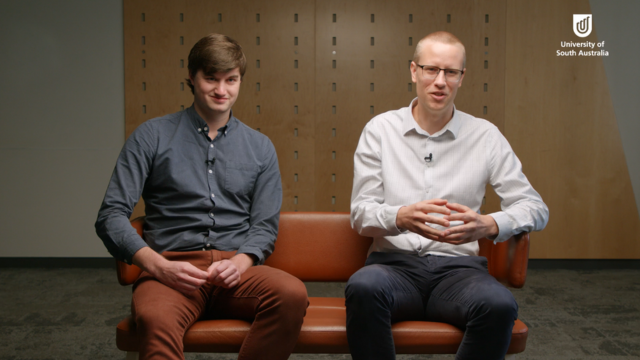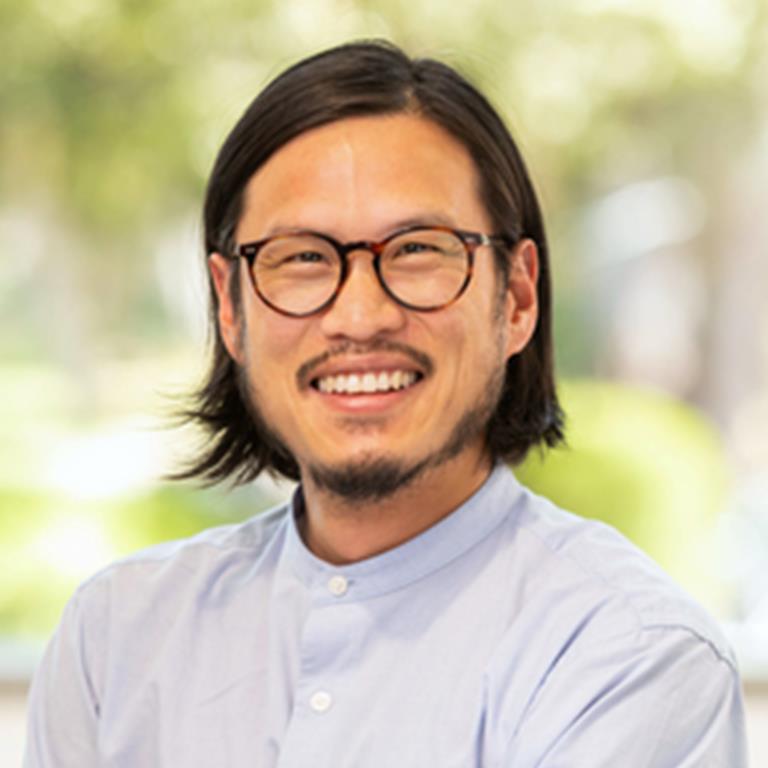Bachelor of Arts (Honours)
Degree Level Undergraduate
Year 2024
You're considered an International student if you are:
Degree Level Undergraduate
Year 2024
Program Code
MHAR
Prerequisites
None
Assumed Knowledge
None
Fees
AUD$ 30,900 per annum (per 1.0 EFTSL) for students enrolled in 2024
International Admission by Country
See full entry requirements
CRICOS Code
024183A
Entry into the Honours program will be available to students who have successfully completed an undergraduate degree or equivalent with an overall grade point average of 5 or above (credit level average). In addition applicants need to have achieved:
Applicants are selected on the basis of academic merit and the availability of a supervisor in the proposed area of research.
This program is not currently open for applications
12018 ARC Engagement and Impact Assessment (EI), Combined Impact –Approach to Impact and Engagement on Assessed Fields.
2ComparED (QILT) Student Experience Survey 2019-20, SA public universities.
3ComparED (QILT) Student Experience Survey 2019-20 – Learning Resources Indicator (Undergraduate). SA public universities.
42021 Good Universities Guide – Undergraduate.
This one-year Honours degree will equip you with advanced skills in research, critical thinking and writing.
Under the guidance of an appointed academic supervisor you will complete your own thesis or artefact-plus-exegesis project, and graduate with an in-depth understanding of your chosen field of specialisation.
The key focus of the Honours degree is research and the production of a pure thesis or artefact-and-exegesis at the end of your studies. Your research could be based on one of the following subject areas:
This program is a substantial research degree that allows you to develop expertise in a particular area of study of your choice, under the guidance of an experienced academic supervisor. Graduating with an Honours degree will set you apart from the crowd, ensuring you have a competitive edge and are well-placed for a career in industry, research or further postgraduate study.
In this Honours degree, you will be taught by our world-class educators and researchers, with expertise in complementary disciplines such as linguistics, language studies, screen studies, media and communications, sociology, politics, psychology, social work, human services, arts and Aboriginal studies.
Our relationships with industry and government bodies enables our students to contribute toward improving public policy, community development, and social, creative and economic outcomes in Australian society.
UniSA’s Bachelor of Arts is taught by world-class educators and researchers and enables you to pursue two areas of academic interest at once. Hear from UniSA student Luke Heathorn and Program Support Coordinator Louis Everuss on what it's like studying our Bachelor of Arts degrees.

Arts students go on to enjoy rewarding careers in a range of industries, including:
As an Honours student you may also choose to pursue a career in research – graduates with Honours are highly sought after by prospective employers, particularly in academia and research environments.
How to apply for international students will give you helpful information about the application process at the University of South Australia. When you are ready, apply through our International Application System. If you would like to talk to someone near you about studying at the University of South Australia, we have agents all over the world who can assist you. Find an Education Agent in your country.
Every year, over 2,500 UniSA students are supported in their studies through scholarships and grants worth millions of dollars. Check out the scholarships below. One of them may be perfect for you. Visit our scholarships page for more.
Recipients can get a 50% reduction on tuition fees for up to four years of full-time study for selected degrees.
Recipients can get a 15% reduction on tuition fees for the duration of their chosen degree.
As a UniSA student, you will have unique access to work placement opportunities, overseas study tours and exchanges, networking events, internships, guest speakers and more.
Our campuses are equipped with state-of-the-art facilities including modern lecture theatres, libraries, workshops and laboratories, as well as spaces that simulate real work environments. These are all supported by the latest technologies and a 24/7 online learning platform. We have health services on campus, gymnasiums, technology zones and great student lounges. You will also gain access to a range of community clinics, which provide professional and cost effective services in areas of health, business, law and psychology. There are campus sport activities to keep you active, and if you are keen to explore the social side of university life, there are movies, cooking demonstrations, parties and lots more.
Adelaide also has a variety of accommodation options to suit different requirements and budgets. Options include dedicated student accommodation and private rentals. See our long-term accommodation pages, or explore our student accommodation by Scape on Bank Street in Adelaide’s lively cultural precinct, an ideal location for students. It is within easy reach of UniSA’s city and metropolitan campuses, Rundle Mall shopping, the Central Market, Chinatown, and the West End’s vibrant nightlife. It is also across the road from the Adelaide train station, and on bus and tram routes.
As an arts student you will have access to:
I am a Senior Lecturer in Screen Studies at the University of South Australia. I am also an internationally recognised researcher who specialises in film, media and visual culture studies, often bringing film into dialogue with other disciplines in the humanities. Prior to academia, I worked as an Assistant Curator of Exhibitions with the Australian Centre for the Moving Image, where I helped to curate a number of film programs, exhibitions, screen and art related events for the public. I believe my commitment to high-quality, interdisciplinary research and teaching, as well as its real-world application will enable Honours students to achieve their best in this degree.
There are a number of ways to apply to study UniSA's undergraduate and postgraduate coursework degrees.
You can access our online International Application System through our How to Apply page. The International Application System is an easy and secure online application and acceptance process. You will have visibility of your application through the secure online portal with the ability to download offer documents, submit your acceptance and make a payment.
Alternatively you can submit an application through one of the University's registered Education Agents.
If you are completing an Australian year 12 qualification in Australia or overseas, or the International Baccalaureate (IB) Diploma Programme in Australia, you must apply through SATAC http://www.satac.edu.au/.
If you are applying for the UniSA Study Abroad or Study Abroad Plus program, you can submit your application online here.
Postgraduate study by research
For information on applying to do postgraduate study by research, including Masters by Research, PhDs or Doctorates, please visit http://unisa.edu.au/resdegrees.
There is no closing date for submitting your application however the admissions process takes between one and three weeks from the date that we receive your application and all required supporting documentation.
If you are completing an Australian year 12 qualification in Australia or overseas, or the International Baccalaureate (IB) Diploma Programme in Australia, you must apply through SATAC. Key dates for applications can be found here.
You may be eligible to receive credit or advanced standing for your chosen UniSA degree based on your previous studies, if they are in a related area at an equivalent or higher level. Receiving credit will reduce the number of courses you undertake within the degree, and may also reduce the overall duration of your degree.
The amount of credit you may be eligible to receive is assessed on a case-by-case basis by the Admissions team.
The best way to determine your eligibility to receive credit or advanced standing is to apply using our International Application System which can be found on our How to Apply page. You will need to supply detailed syllabus documents with your application.
UniSA welcomes the opportunity to speak with you regarding your study options. Our staff are able to talk to you about degree information, career outcomes and pathways, entry requirements, applications, and student life, so that you are able to make the best study decision for your future.
Click here to book a 1:1 appointment with one of our enquiries team.
We also have many events throughout the year in Australia and overseas where you can speak with UniSA representatives about your area of interest. View our calendar of events in your home country by selecting the 'International' filter.




